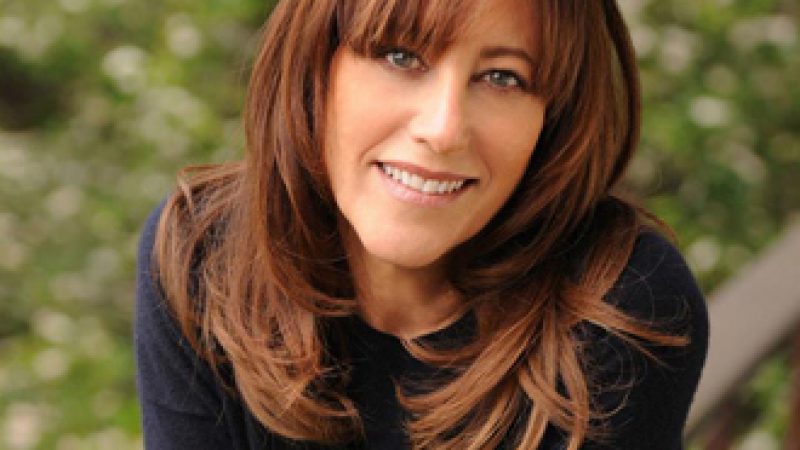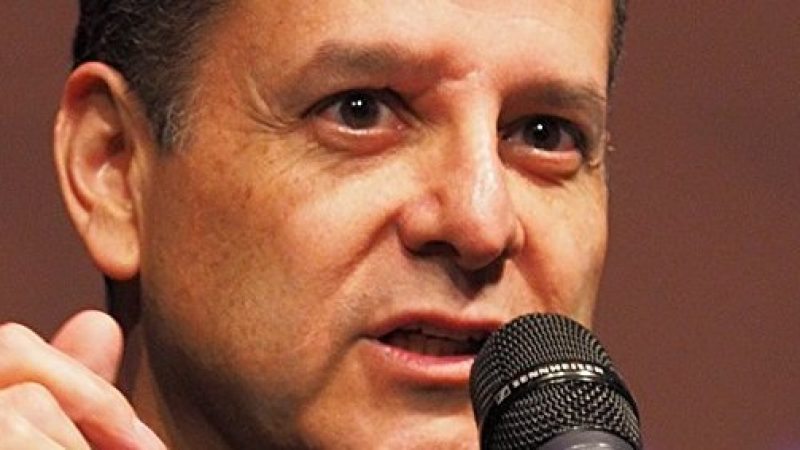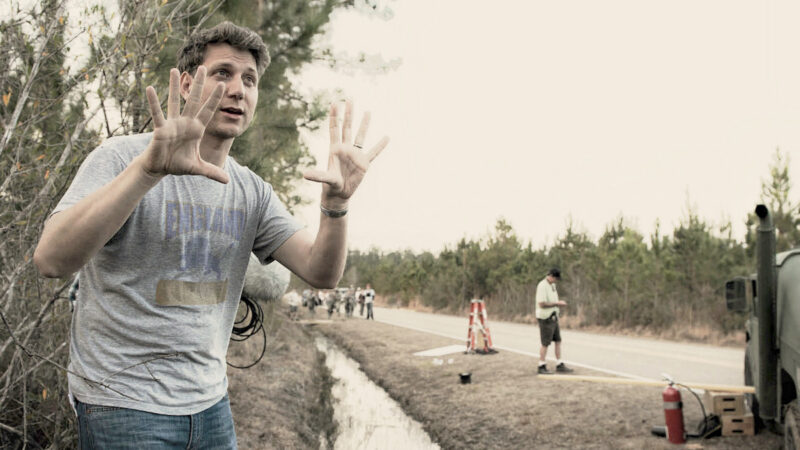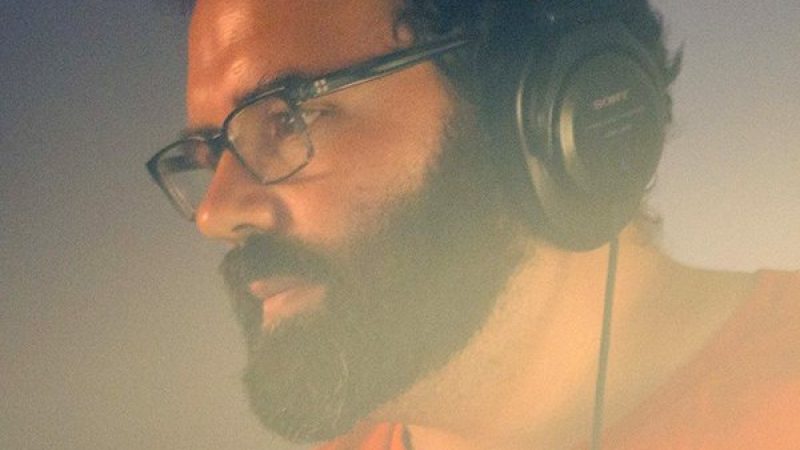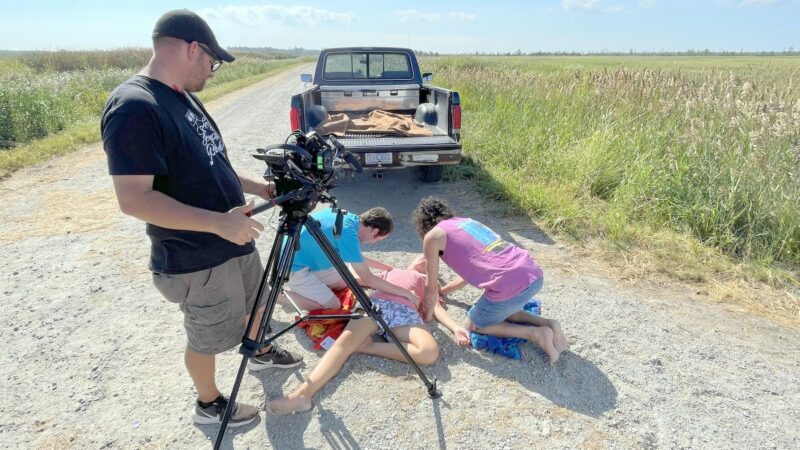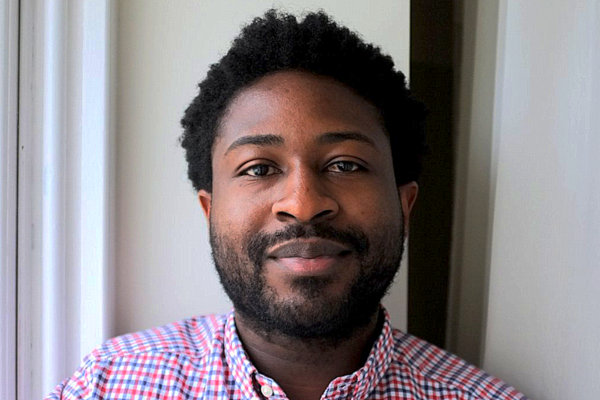
“Tony Sebastian Ukpo is a British-Nigerian and currently based in France. Tony studied film at the London Film School after having already dabbled in the creative arts writing and directing theatre, short films, writing short stories and graphic novels. Tony Sebastian Ukpo figured he always had a creative streak, as many people do, but he decided quite early on that film was what he wanted to do, and moved towards it with no real plan B. Tony has been making films ever since.”
Writer/Director’s Reel 2015 – T.S. Ukpo from Tony Stark on Vimeo.
Did you study what you do
I went to film school primarily to get technical knowledge and meet fellow creatives, as really part of being in the industry is all about who you know. Who you can collaborate with, who you can be of service to, who you might be able to get an additional push from. Going to the London Film School which is very international, I got to be surrounded not just by many creative voices, but voices from all around the world. Saying that, I learned so much just from being around sets and watching films and discovering, and that continues to this day. You never stop learning, and it’s not just because the medium is evolving everyday, but because there’s so much information and culture to take in, every project is kind of like going to school all over again
T.S. UKPO 2016 – Portrait of a Filmmaker from Tony Stark on Vimeo.
What is your filmmaking process
it’s not my place to say whether or not I have a specific cinematic voice, though I suppose I gravitate towards certain themes and visual motifs. I’m interested in a lot of different kinds of stories and genres, and as I’m also a writer, I tend to invest my time in the worlds that I am creating, and the characters who inhabit it. World building I feel is a very important aspect of telling a story, whatever the genre, that really feels like something real and emotive for an audience. There’s no right or wrong way to direct a film, so long as the end result gives the audience the satisfaction of having entered into the world you created, and leaving with a sense of having experienced something
Final tweaks before post completion on Simana. Here’s the release poster pic.twitter.com/ILCoF9hYWD
— Tony Sebastian Ukpo (@tsukpo) December 18, 2015
Tell us about the work you have directed
I’ve primarily directed my own scripts, which is a very different approach to making other people’s scripts as a director for hire, or when collaborating. But in each circumstance I have always aspired to do something that was new for me, and I also try and convey the story in a way that I feel gives me something challenging to do as a filmmaker, be it stylistically or otherwise. I like to experiment with form as well, though I do feel that as a director you have to kind of go where the story takes you. I’m not one for rigidly sticking to a particular style of filmmaking, though it is something I enjoy watching very much in certain directors bodies of work, but it’s not in my nature to deliberately make every film the same way, rather to let whatever subconscious aspect of my style as a director find its way into the picture organically. It’s more honest, and the story is better off for it usually in my opinion. At least related to my own work.
Do you take courses to improve your craft
You are kind of always learning, and absorbing things from life as well as cinema. I never really sought out to learn techniques or methods, because I was always fairly confident in my own approach to filmmaking. So other than for things more on the pre production side of things like financing for instance, I don’t really subscribe to the idea of workshops and the like unless it is absolutely specific to a particular subject that I am thinking of at the time, or by someone I have a personal intellectual interest in. Though I do feel that for certain people they can be an invaluable resource, but everyone is different. It’s all about finding out what works best for you as an artist.
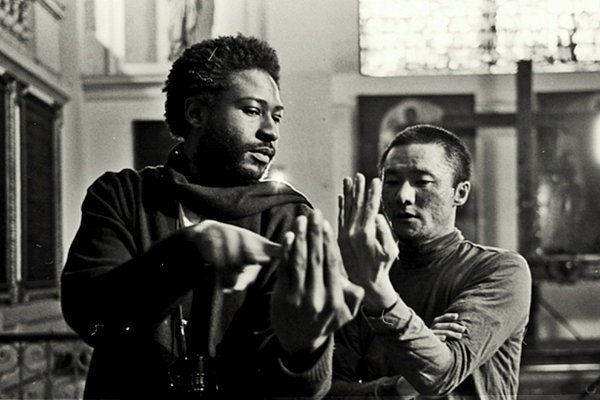
How do you combine directing and writing
For me it is a symbiotic relationship. I am a very visual writer, and so by consequence I eventually edged more towards directing as well, so the process for me is all linked. From coming up with the idea for the story, to building characters, to editing the film after shooting, for me it’s all part of a singular process of construction, and one can rarely be without the other. Even on films where I didn’t work on the script, I think as a director I still had to visualise it all in my mind in a way that made sense from the writing leading into production, that made it mine.
How did you get into the film business
I kind of just started making films. Robert Rodriguez famously said, if you want to be a director, go out and print some cards with your name on it with the title, and start making films. I really feel that especially these days it’s as simple as having the motivation to go out and just start making things, and eventually you will get to a point down the line if you persevere, that you just somehow end up being in the mix of things, and with a lot of luck, actually be in the business in a way that is not just peripheral, but actively contributing to the culture. And if you’re really lucky, influential in its own right. Even if that means simply inspiring someone else to do the same. It’s all about patience
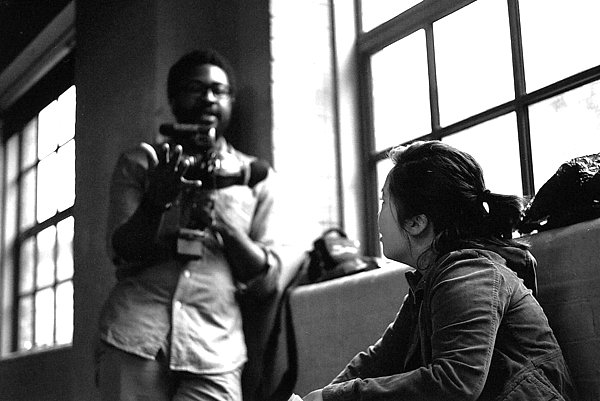
How do you turn an idea into a screenplay
Time, inspiration, motivation and honesty. You can have a thousand ideas, and only 2 that have the right mix of things to work as a full script, and that changes all the time. I’ve had ideas for films that eventually evolved to be single scenes in other films and vice versa, as well as scripts I got pages away from finishing that suddenly lost all value creatively for me. So it’s not an easy question to answer. It’s as mercurial as the weather. Also I think that if you are writing a script for someone else, or with a goal in mind like “I need to do it this way as that’s the kind of thing that is supposed to work”, then you’re not being honest to your story, and to yourself as an artist. It needs to come from you, and you need to be invested in it, even if it is someone else’s idea.
Explain your writing process
There was a time where I would just start writing and see where it took me, and have a finished script at the end. These days I tend to have an idea, which I attempt to expand into a full story in the form of an outline or treatment. If I can somehow get to the end of that story, then I begin to translate it into a script, editing and adding things in along the way to the basic spine of it, to eventually come up with a final script. I don’t believe in drafting, I prefer to do it as I go. That doesn’t mean I don’t change things after the fact, but to draft just for the sake of it I find counter productive and a waste of energy that could be expended elsewhere in the process. I feel if you have a clear idea of what you want to do and the story you want to tell, it will come out pretty early on, and if it’s not working as you’re writing you’ll feel it. Of course this is not an industry method, just how I like to look at things.
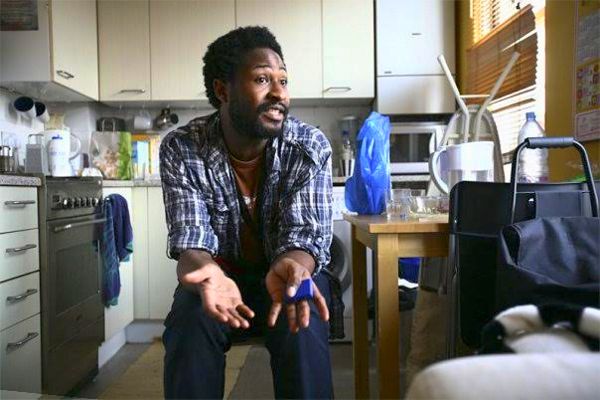
What writing tip or idea can you give young writers
if you can talk someone through the story as if it’s a film you just watched or a book you just read and get them interested, then you’re on the right track. It’s also useful to give yourself time between coming up with an idea and fully diving into it, as you’ll find very quickly that bad ideas or mediocre ones, tend to lose your interest pretty quickly after you’ve left them to sit for a bit in your drawer. If you go back to it and you’re not only still interested but also brimming with more ideas to throw into it, then you likely have something worth the time and effort to keep working on. And time is your friend. Deadlines are good and can often yield some remarkable ideas when faced with the pressure to finish a script, but for some people the story benefits from lulls in development, so don’t be too afraid to leave something to marinate for a long time
What is is like working in the Hollywood system
As an independent, it’s a different vibe. I’m aware of how the system works, and it’s one that requires a particular kind of navigation both creatively and politically, but at the end of the day I’m just interested in making films that are of value to me. The rest comes on its own, or it doesn’t. You can’t force it. But you have to be ready to deal with a lot of different kinds of people and situations. I find a lot of people get lost in playing the game and forget that sometimes the films suffer along the way as a result, and there’s an edge that gets lost when you are constantly thinking of the bottom line of box office or fame and exposure.
What do you want to change about the film business
Inclusiveness and artistry need to come back. Also a bit more risk taking as far as the kinds of films being made. It can’t all be money making blockbusters, and if production companies and financiers can find a middle ground where more intimate independent films can also get the exposure they deserve, then the landscape will be a lot more culturally enriching.
What do you want to be remembered for
I couldn’t possibly say. I suppose If a handful of people remember the films and are moved by them in some way, I’d be happy.
Website | Facebook | Twitter | Vimeo | IMDB | Instagram | LinkedIn
INTERVIEWS
Director Amy Glazer Brings Kepler’s Dream to Life
An 11 year old searches for a missing rare book from her grandmother’s library
How I Made My Film, ‘Fear, Love & Agoraphobia’ by Alexander D’Lerma
A Step by Step Filmmaking Process of Fear, Love & Agoraphobia
The Key Facts Behind How Jeff Nichols Made The Indie Hit MUD
Jeff Nichols gives himself directorial challenges to master on every project.
In Conversation with Michael Oblowitz Director of Confidential Informant
Confidential Informant stars Mel Gibson, Dominic Purcell, and Kate Bosworth
more interviews

